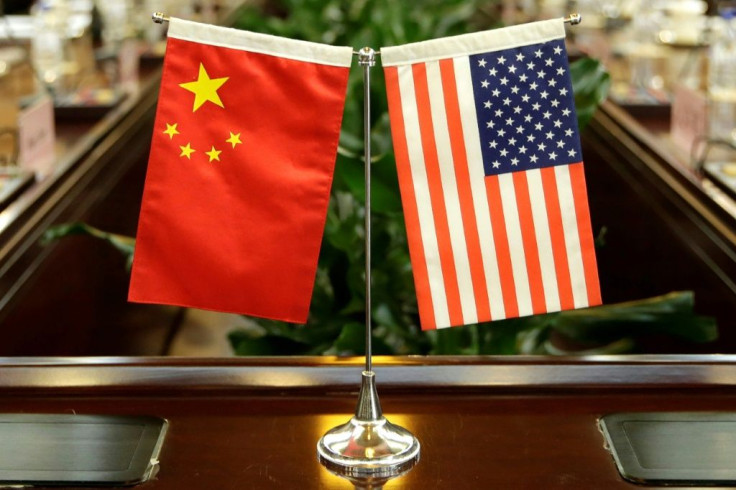Facing 2 Major Adversaries, US Seeks Talks With China Amid Concerns Of Nuclear Capability
KEY POINTS
- Washington and Beijing have both agreed in principle to the need for arms control talks
- Beijing has undertaken a massive military modernization program in recent years
- China is embroiled in territorial disputes with several countries in the South China Sea
As the U.S. for the first time in history faces two major nuclear adversaries, Washington is looking to hold talks with Beijing for a better understanding of each other's doctrines about crisis communication and management, amid growing concerns over China's rapidly modernizing nuclear capabilities.
Speaking at an Atlantic Council event in Washington on Tuesday, Alexandra Bell, Deputy Assistant Secretary of State for arms control, verification, and compliance, said the U.S. would "really like to have a conversation" with Beijing, "about each other's doctrines about crisis communication, crisis management."
"We've been working this issue with the Russians for 60 years. And as everyone can see, it's still quite difficult," Bell said, adding, "We're not in that space with Beijing yet."
According to a report in the South China Morning Post (SCMP), both Washington and Beijing have agreed to the need for arms control talks in principle. However, despite repeated calls, China, which has undertaken a massive military modernization program, has reportedly refused to enter formal discussions with the US so far.
Terming China "the pacing challenge" the National Strategy of the Defense Department released on Thursday said that Beijing posed the "most comprehensive and serious challenge to U.S. national security."
The strategy document highlighted China's "coercive and increasingly aggressive endeavor to refashion the Indo-Pacific region and the international system to suit its interests and authoritarian preferences."
Apart from its conflict with Taiwan, which Beijing considers a renegade territory it seeks to reunify by force if required, China is also embroiled in territorial disputes with several countries as it seeks to lay claim over most of the resource-rich global trade routes in the South China Sea.
Chinese President Xi Jinping has reaffirmed the military role as a strategic tool for achieving the ideological goal of national rejuvenation saying that the use of military power needs to be normalized to win regional wars.
Recently, following the solidarity visit by House Speaker Nancy Pelosi to Taipei, Beijing deployed scores of planes and fired live missiles near Taiwan in its biggest drills in the Taiwan Strait. Meanwhile, the U.S. has repeatedly asserted its determination to support Taipei in defending itself against Beijing's aggression.
Identifying risks from four countries — China, Russia, Iran and North Korea, apart from non-state actors, a recent report by the Heritage Foundation, a Washington, D.C.-based conservative think tank, said the U.S. is "certainly ill-equipped to handle two nearly simultaneous" contingencies.

© Copyright IBTimes 2024. All rights reserved.






















